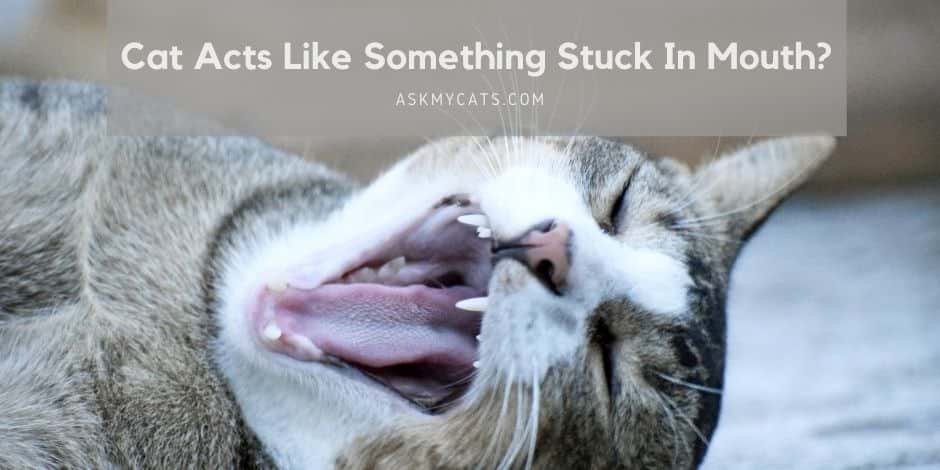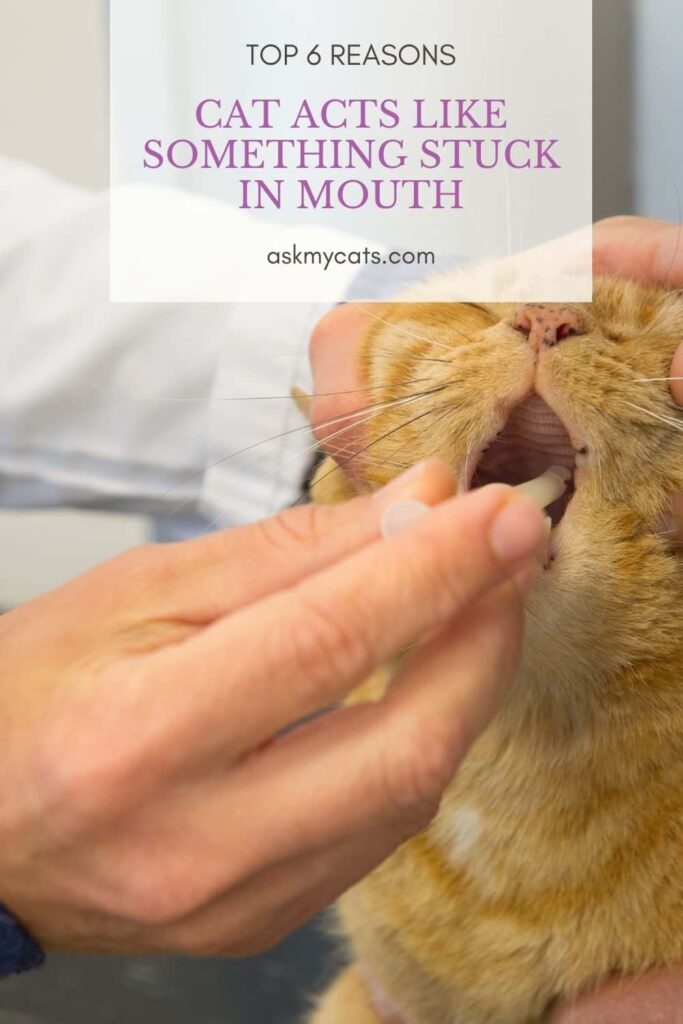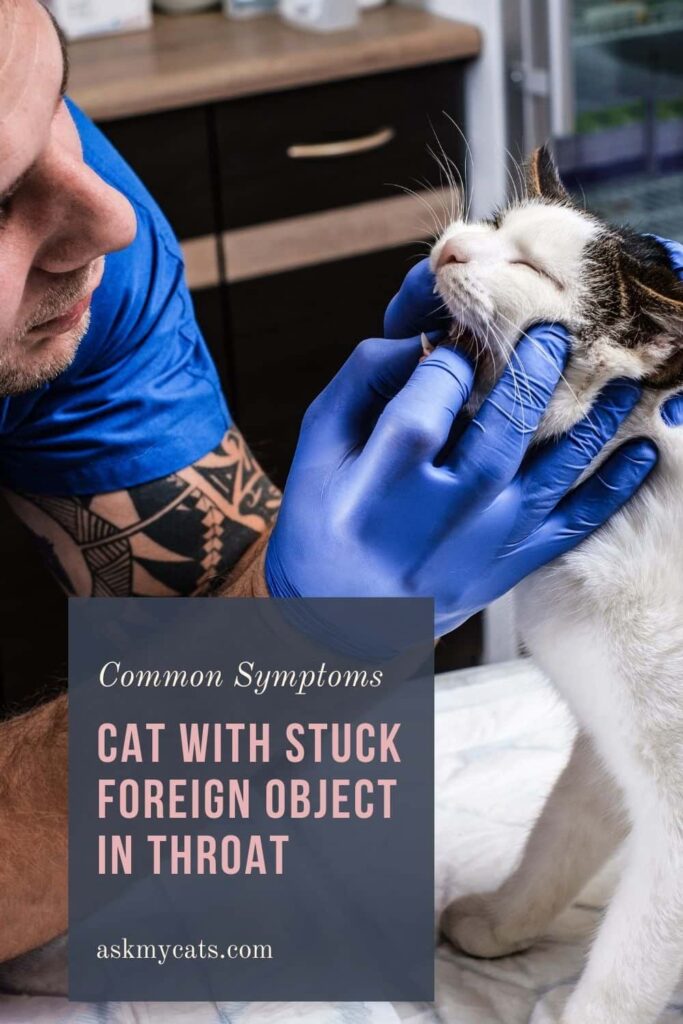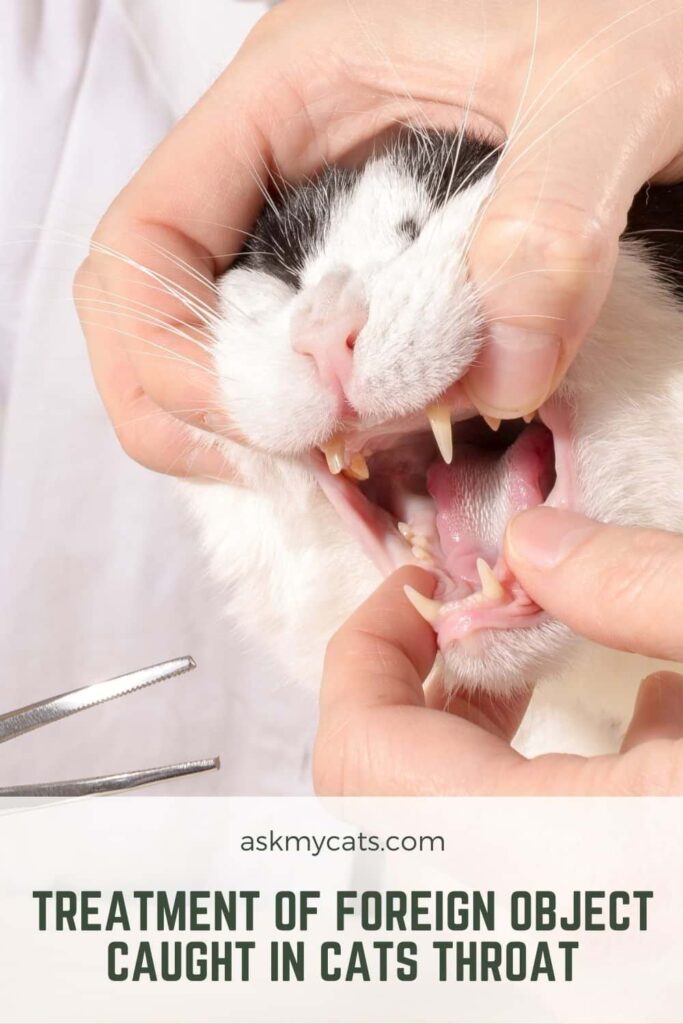Wondering why your cat is drooling and acting like something is stuck in his mouth? The most probable reason for your cat acts like something stuck in the mouth can be tooth-related problems such as tooth cavity, gum infection, or tooth abscess.
Dental or some other form of oral issue is suggested by the actions of your animal. For a dental test, please see her by a veterinarian. To better her condition, she may need her teeth to be cleaned.
She may have a high breathing infection, asthma, or perhaps a foreign object stuck in the mouth.
If it persists, a veterinarian should investigate the cause. An antibiotic may be required to cure his condition.


Give Your Cat the Perfect Day
Get the Free Ebook!
Cat Acts Like Something Stuck In Mouth: Top 6 Reasons
When a cat makes a coughing or choking noise, something in the mouth or throat may be trapped. What this may be linked to what they drank.
How you handle yourself allows us to see what might be trapped.
The two principal risks of choking are:

Hairballs stuck
All in the digestive tract is known as a bezoar. Hairballs are a kind of bezoar that develops when a cat ingests hair through grooming. Many cats are discarded during the year but melt twice a year.
The cat may eat more fur than normal during these periods, which contributes to hairballs.
When the hair gathers in the digestive system, a moist mass combined with the phlegm may become created.
The tone is less vomiting, sounds like regurgitation when a hairball is coughing. It feels like crying more than coughing as the hairball is removed.
You can even see the cat sticking out his tongue while attempting to lift the hairball.
You may drool a little before the hairball comes in. The hairball should avoid all noises of shock until it has been made. Few hairballs are more time-intensive than others.
It’s imperative that you look at your cat regularly if you want to stop fur balls. Many domestic cats, especially longhair breeds that have no cat in their home, would require assistance. Malt paste may also be used to assist hair digestion or to promote rejuvenation.
For a cat the hairballs are natural, but they can lead to a trichobezoar if too much has been eaten. These can be more trapped in the digestive tract and harmful. They’re rare and they’re certainly not helped by choking.
Interesting Read: Pregnant Cat Drooling: Reasons & Solutions
Foreign Matters
Although a hairball may be unpleasant for a time, it typically does not affect the cat. It would definitely be a foreign object if your cat is coughing and wheezing, but there is no hairball. This is another problem.
The effect could be a chilling threat if a cat ingests something it shouldn’t have. It may move through your digestive system when the foreign object is small enough. It may get trapped in the throat or in the mouth if it is too big to move.
If your cat is trapped in his throat, it might seem like it is precipitating a lot. You probably want to get the item out instead of getting sleepy. You should also grit teeth a bit to dispel objections.
You must be able to see it while the point is in the mouth. The cat should be able to expel it itself whether it is still or if it is too weak. It could also be air will escape if it’s blocked at the back of the throat (top of the esophagus).
The cat is not really in imminent danger but may be annoyed. If the object blocks the airway, it must be instantly dislodged.
Can eating shampoo also lead them to choke? Read here.
Asthma
Asthma cats can make sounds somewhat like choking or coughing. Feline asthma is one of the most prevalent respiratory disorders in cats and affects about 1% of humans.
In a cat, an asthma attack inflames their breathing, strains them, and makes it even harder to breathe.
Minor asthma attacks in cats can result in minor coughing, so you need them to be taken to a veterinary hospital if they are acute. In general, you should not smoke your cat but particularly a cat with asthma.
Congestive Heart Failure
Coughing can be a symptom of a cat suffering from heart problems. This would potentially lead to coughing for a prolonged period of time.
When a cardiac attack takes place, the signs can be one, so the others will alert you to an emergency. Any studies find medications like spironolactone to be used in cats for the prevention of cardiomyopathy.
In order to monitor critical elements such as cardiac activity, annual or biannual veterinary monitoring should be carried out. Filariasis is a heart disease caused by the heartworm parasite. It can be passed on to human beings that are zoonotic.
Infection
Shock sounds can be a symptom if your cat’s been sick with a disease, or infested with a parasite.
Infections of this sort can have certain symptoms, so they mostly lead to coughing or retching of the sounds. Lungworm is a very unpleasant parasite and can cause a cat to cough.
A recent study suggests the development of more advanced diagnostic tests, though visualization of a nematode in fecal and breathable samples (bronchial mucus or pleural fluid) has been used as the primary diagnostics.
A veterinarian will have to be treated so adequate deworming is necessary for prevention.
Allergies
Cats are also prone to an allergy when we can care more about cats that are affected by human allergies.
This may be due to diet, plants, washing of items, materials, and medicines (including pollen). Cats may be allergic to objects that imitate people.
Symptoms are wheezing, coughing, and sneezing that might sound like cats’ choking sounds. Send the pet to the doctor for allergy checks and exclude all other diseases.
Cat Acts Like Something Stuck In Mouth: Is It A Serious Issue?
Cats use their tongues and mouths to explore the world around them. This habit will get your feline friend into trouble occasionally and endanger her welfare.
A cat can sometimes ingest an item that is too big to move through her esophagus or upper digestive tract.
These foreign bodies can get trapped in the esophagus or airway, blocking digestion or airflow. Inflammation or damage to the esophagus or airway may also be caused by a foreign body, leading to irritation and discomfort.
Visit a doctor urgently if you suspect that your pet has a foreign object stuck in your throat. An oesophageal or pharyngeal blockage is a life-threatening situation, depending on the size and position of the object.
Cat With Stuck Foreign Object In Throat: Common Symptoms

Cats with foreign species in their throats have varying behavior, depending on whether the airways or sperm are blocked.
One or more of the following signs may occur in a cat with oesophageal obstruction:
- Hyper-recovery
- Clutches
- Difficult to vacuum
- The Renewal
- Tentative to swallow
The symptoms can be less apparent if your cat’s esophagus is just partly blocked.
Partial oesophageal blockage signs in cats include:
- Appetite deficit
- Loss in weight
- Weakness
- Oesophageal inflammation or infection
- Lung disease
The following symptoms could appear in a cat with obstructed airways:
- Wheezing Cough
- Loudly breathe
- Choking when trying to swallow
Is it good if a kitten licks your food and can you eat it?
Reasons Why Foreign Object Triggers Caught In Cats Throat
Normally, the foreign body has been licked, swallowed, or otherwise eaten by a cat suffering from this form of obstruction.
Perhaps you even saw your cat eating the thing offending. Any toys can be eaten by your cat during playtime, in particular yarn or string.
If your cat eats too fast or fails to chew correctly, food can even block your cat’s airways. Your doctor only does testing tests to assess what kind of foreign body is stuck into your cat’s throat.
Treatment Of Foreign Objects Caught In Cat’s Throat
Your doctor has to take X-rays of the chest and neck to assess the partial or full blockage of your pet.
Your cat will show signs that the issue obstructs the lower respiratory tube, such as hacking or breathing difficulty, which will eventually cause the doctor to radiate the chest of your pet.

If the veterinarian is wary of obstructing the upper respiratory and upper airways, you should use a scope for physical inspection.
These techniques enable the position of your foreign body through your veterinarian.
Global species in the GI tract typically display a standard x-ray head or chest.
If the outer body cannot be located on an X-ray, the veterinarian can conduct an oesophageal contrast plot in which the cat swallows a radioactive color to help to an image.
An oesophagoscopy may be done by feeding your veterinarian an area, or camera, to picture the exterior body of your sedating cat’s esophagus.
An esophagus tearing or pain of the foreign body may also be investigated.
The first priority of your doctor is to get the item out as quickly as possible while handling an alien object trapped inside your cat’s throat.
If the alien body is stuck in the upper or upper airway esophagus, endoscopy and forceps or a catheter with a balloon may be held by the mouth in compliance with the type and proportions of the body.
If the external body is especially harmful or sharp, it is possible to feed an endogastric tube into your cat’s mouth to protect the oesophageal body during the healing.
If your cat’s mouth becomes too risky or difficult to extract the alien body, your veterinarian will drive the entity safely into the remaining GI tract. An airway blockage can also be allowed to splutter with the lubricating secretions in the respiratory tract.
If none of these approaches is sufficient, your cat might need surgery to extract the external body. This procedure is relatively normal and secure, with a recovery rate of 93 percent.
If the esophagus of your cat has been wounded or inflamed by an alien entity, it might be appropriate to heal it or irritate it. Medications against inflammatory and debilitating symptoms will ease your cat’s soothing discomfort.
Foreign Object Recovery Caught Up In The Cats Throat
Typically, cats heal easily after the foreign body is removed. It is also critical that your cat does not suffer from esophagitis, discomfort, or illness, so plan a follow-up with your veterinarian.
The following may include drugs or other care for accidents and irritations diagnosed. If chronic, your cat will require a softer diet and short, regular meals to make you calm.
Antibiotics may be appropriate to avoid the infection of the infected tissue, depending on the nature of the abrasions.
The recovery rate after one of these challenges is high, as stated previously, and needs little continued control over the feeding habits of your pet.
Frequently Asked Questions
Why does my cat chew with nothing in his mouth?
It may be a symptom of dental or nausea. Melting teeth, running chews, and smoking lip are typical manifestations of cats’ nausea and dental problems. I recommend a complete inspection ride to the vet.
How do you get something out of a cat’s mouth?
Use your hand in a sequence of rapid upward thrusts, roughly 5 times to softly but firmly to drive her abdomen. Keep your cat up on her back hip, with her head down, when your first series of blows doesn’t dislodge the thing.
Why does my cat’s mouth get stuck open?
Cats also hang their mouths open to help them discover their world. As the smell is taken by the pet, she sucked into the air and passed it to a Jacobson organ, also known as the vomeronasal pocket, situated in a cat’s mouth behind its teeth.
How long does it take for a cat to pass a hairball?
Your cat can also nibble on the hay, and constipation and lethargy can also be other signs. If the hairball is not your pet and the symptoms are more than two to three days, book a consultation with your doctor to make sure nothing more is wrong.
Does wet food help with hairballs?
Canned food helps through the hair because it is easy to ingest, ensuring that it travels easily through the body, not giving hair time to make a ball. Cats that have a diet of just dried food will have fewer balls of fur.
What happens if a cat can’t cough up a hairball?
A hairball will get trapped in the intestine quite rarely and cause blockage. If they have all of these signs, you can take your cat to the vets: Long gagging, vomiting, rattling without hairball. A reduction in hunger is also noticeable.
Final Words
So what are your thoughts about a cat acting like something is stuck in its mouth?
What treatment have you followed for their care?
Share your message with us in the comments section below.
